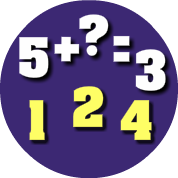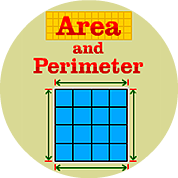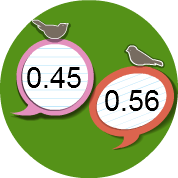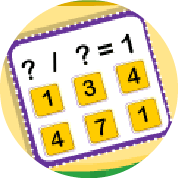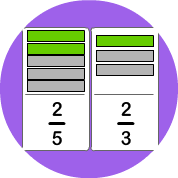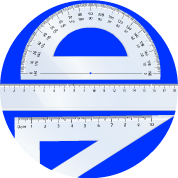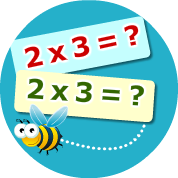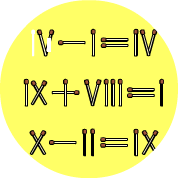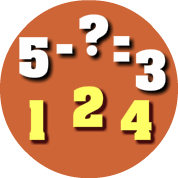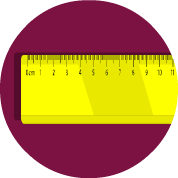Login as parent/teacher to assign this.
Fun Math Games
Fun Math Games
Kids are eager to try something new outside the classroom like math games online. They will be able to strengthen their math foundation with fun. Animated graphics make the games visually appealing. They may not even realize they’re studying.
Turtle Diary offers the perfect online math games for kids at the exact grade levels kids need them. We use a scaffolded approach to build on previous skills. There are games and subjects for every level from Pre-K to 5th grade.
Turtle Diary offers the perfect online math games for kids at the exact grade levels kids need them. We use a scaffolded approach to build on previous skills. There are games and subjects for every level from Pre-K to 5th grade.
Build Math Skills by Playing Math Games
Scaffolding
Scaffolding is an educational process by which students are taught pieces one by one. Each builds on the previous pieces for a steady learning process. This is more realistic than expecting them to grasp everything all at once.
Turtle Diary embraces this philosophy. We offer a scaffolded approach to mathematics. Specific games naturally follow each other with each level. All of our games align with common core math.
Problems begin to increase in difficulty over time. This enables students to have mastery of these concepts without boredom.
Turtle Diary embraces this philosophy. We offer a scaffolded approach to mathematics. Specific games naturally follow each other with each level. All of our games align with common core math.
Problems begin to increase in difficulty over time. This enables students to have mastery of these concepts without boredom.
Repetition
Turtle Diary offers a variety of games to prevent boredom. Students practice the same skills in a variety of games. This keeps them engaged and entertained while they have fun.
Learning math can be dull with drills and flashcards. Kids can review concepts with fun new approaches when playing online games. They don’t even realize they’re repeating information. They gain confidence even with new material presented. Each game puts them further on the pathway to success.
Learning math can be dull with drills and flashcards. Kids can review concepts with fun new approaches when playing online games. They don’t even realize they’re repeating information. They gain confidence even with new material presented. Each game puts them further on the pathway to success.
Fun
Games are fun. Plain and simple. Kids will increase in confidence and ability the more that they play.
They can work by themselves or with classmates in a variety of games. Our multiplayer games allow kids to connect across the internet.
These fun math games for kids are a great supplement to the usual in-school educational approach. They help kids gain the mental memory that they need for quick recall and processing.
Turtle Diary is the place to go for amazing math games that help kids learn gradually. They will be confident in their own abilities while having fun.
They can work by themselves or with classmates in a variety of games. Our multiplayer games allow kids to connect across the internet.
These fun math games for kids are a great supplement to the usual in-school educational approach. They help kids gain the mental memory that they need for quick recall and processing.
Turtle Diary is the place to go for amazing math games that help kids learn gradually. They will be confident in their own abilities while having fun.
What Will Kids Learn While Playing Games?
Counting (Numbers)
Counting games help younger kids work on both recognition and identification of numbers. They will begin to associate groups of items with their corresponding number.
Using a Hundred Number Chart in a game will help students identify numbers. It will also help them to figure out which number or numbers might be missing. Kids love to sleuth out the missing tiles on the chart!
Skip counting is a more advanced skill that will serve them in their future. It is also called Connect Counting. Students skip by 2s, 3s, 4s, and so on, jumping on the numberline as they increase.
Using a Hundred Number Chart in a game will help students identify numbers. It will also help them to figure out which number or numbers might be missing. Kids love to sleuth out the missing tiles on the chart!
Skip counting is a more advanced skill that will serve them in their future. It is also called Connect Counting. Students skip by 2s, 3s, 4s, and so on, jumping on the numberline as they increase.
Addition
Students will work on adding different numbers in equations. They will learn to recognize the vertical and horizontal number sentences.
Processing speed will be worked in these games as students race against the clock. They can answer questions in order to accomplish something within the game.
Another fun way to practice addition facts is with our Color by Number games. Students must solve the equations to find the right colors needed to finish the art.
Processing speed will be worked in these games as students race against the clock. They can answer questions in order to accomplish something within the game.
Another fun way to practice addition facts is with our Color by Number games. Students must solve the equations to find the right colors needed to finish the art.
Subtraction
Subtraction games will be similar to addition games. Students will use the number line at first to move down for subtraction. They will also use both alignments of equations.
Students will increase their processing speed by answering rapid questions. Games will progress as they answer these problems.
They can even play against friends in our multiplayer games. This adds an element of positive peer pressure for motivation.
Students will increase their processing speed by answering rapid questions. Games will progress as they answer these problems.
They can even play against friends in our multiplayer games. This adds an element of positive peer pressure for motivation.
Multiplication
Multiplication involves groups of items. This is best depicted with graphics so students can see the groups.
Times tables are also reviewed for practice. This beats working with regular flashcards. Graphics and sounds make this practice more entertaining.
More advanced games have more action. Car races are fueled by identifying the correct product. Answering correctly allows you to move forward in the games. Sometimes the passing time depends on it!
Times tables are also reviewed for practice. This beats working with regular flashcards. Graphics and sounds make this practice more entertaining.
More advanced games have more action. Car races are fueled by identifying the correct product. Answering correctly allows you to move forward in the games. Sometimes the passing time depends on it!
Division
Division facts will also be practiced in game form with advanced graphics. Students will begin to mentally break down products into their factors. This helps them divide groups to get the correct quotient.
It’s all about that processing speed for division games. Students must have quick recall skills in order to compete in a variety of multiplayer games.
It’s all about that processing speed for division games. Students must have quick recall skills in order to compete in a variety of multiplayer games.
Time
Students will learn a variety of ways to quantify time. Younger students will work with calendars to identify days and months.
Older students will move on to digital and analog clocks. They will match the time on an analog clock to a digital clock. This helps to solidify the visual of the analog clock in their heads.
Older students will move on to digital and analog clocks. They will match the time on an analog clock to a digital clock. This helps to solidify the visual of the analog clock in their heads.
Decimals
Decimals will always be linked to fractions, so these two go hand in hand. Matching common decimals with their equivalent fractions will be a goal in these games.
They will also use the numberline to move between whole numbers using decimals. More advanced students will begin working with mixed numbers to find the decimal equivalent.
They will also use the numberline to move between whole numbers using decimals. More advanced students will begin working with mixed numbers to find the decimal equivalent.
Fractions
Identifying common fractions will be the basis for these games. Students will need to navigate through a variety of scenarios by solving problems.
Adding and subtracting fractions is a more complex skill. Students will begin to learn and practice these concepts as well.
Adding and subtracting fractions is a more complex skill. Students will begin to learn and practice these concepts as well.
Money
Students will learn to identify coins first and their value. They will then begin to play games that involve counting money by using the coins.
Real world scenarios are used to illustrate the principles. A classic game like paying for items in a store will help bring this full circle.
Real world scenarios are used to illustrate the principles. A classic game like paying for items in a store will help bring this full circle.
Shapes
SShape games are great for exercising the brain. Logic games and puzzles often involve shapes.
Young learners can play games to practice identifying basic shapes. They can also explore 2D and 3D versions of each.
Many students begin with basic tangram puzzles. They try to copy specific pictures made from a certain number of shapes. Students must learn to manipulate the shapes to get them to fit in the puzzle.
Students can gain an edge in the classroom by practicing mathematical concepts at home. Free math games online are a great way to practice math while having fun. Turtle Diary helps them to sharpen their skills while enjoying learning with online math games.
Young learners can play games to practice identifying basic shapes. They can also explore 2D and 3D versions of each.
Many students begin with basic tangram puzzles. They try to copy specific pictures made from a certain number of shapes. Students must learn to manipulate the shapes to get them to fit in the puzzle.
Students can gain an edge in the classroom by practicing mathematical concepts at home. Free math games online are a great way to practice math while having fun. Turtle Diary helps them to sharpen their skills while enjoying learning with online math games.
Our Educational Resources
Math Games
- Addition
- Area and Perimeter
- Decimals
- Division
- Fractions
- Shapes
- Geometry
- Multiplication
- Number
- Roman Numerals
- Statistics
- Subtraction
- Time
- Units of Measurement


